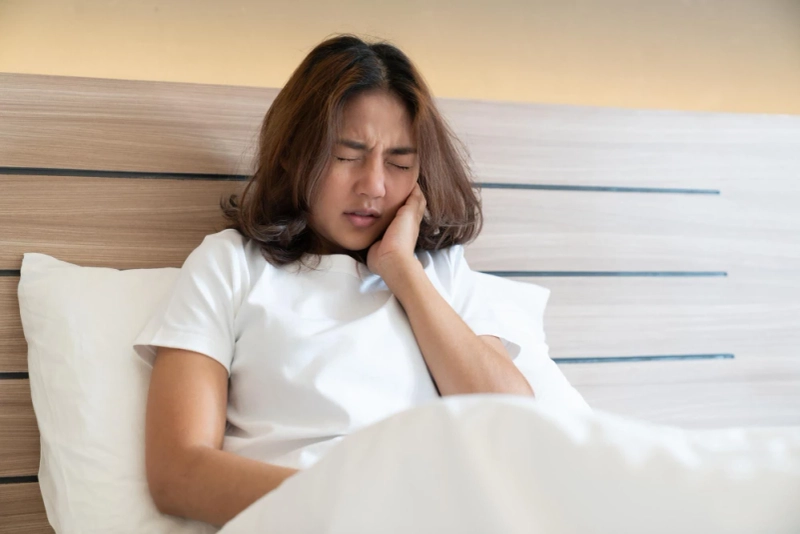Sleep disturbances and bruxism, or grinding of the teeth, are two seemingly independent problems that might be intimately interconnected. Even while the majority of people grind their teeth sometimes without any difficulties, excessive grinding can cause major dental complications and even be a sign of underlying sleep disorders. Comprehending this correlation is essential for accurate diagnosis and management. This blog post will discuss the connection between sleep disorders and teeth grinding, as well as prevalent causes, symptoms, and available treatments.
The Link Between Sleep Disorders and Teeth Grinding:
Grinding one's teeth during sleeping is a widespread habit that is frequently linked to specific sleep stages or sleep cycle abnormalities. Teeth grinding can be caused by a variety of sleep disorders, including sleep apnea, insomnia, and restless leg syndrome (RLS). Compared to people without sleep difficulties, people with these diseases may have more frequent and severe teeth-grinding episodes.
Causes of Teeth Grinding:
Stress, worry, crooked teeth, and lifestyle choices are some of the things that might cause teeth grinding. Nonetheless, the connection between teeth grinding and sleep disorders raises the possibility that irregularities in the sleep cycle or particular periods of sleep may be important. For instance, those who have sleep apnea may grind their teeth in response to breathing problems while they are asleep.
Symptoms of Teeth Grinding:
Since teeth grinding frequently happens while you sleep, it can be difficult to diagnose. Making an accurate diagnosis and developing a treatment plan need seeing a dentist. Nonetheless, a few typical indications and symptoms are as follows:
Worn, flattened, or chipped teethIncreased tooth sensitivityJaw pain or tightnessHeadaches, especially in the morningEarachesDisrupted sleep for you or your partnerClicking or popping in the jaw joint (temporomandibular joint)Treatment Options:
Treating teeth grinding often involves addressing the underlying causes, especially if a sleep disorder is involved. Here are some common treatment options:
Mouthguards or splints: These devices can protect the teeth from damage caused by grinding and help alleviate jaw pain.Stress management techniques: Since stress and anxiety can contribute to teeth grinding, stress-reducing activities such as yoga, meditation, or counseling may be beneficial.Dental correction: In cases where misaligned teeth contribute to grinding, dental procedures such as braces or crowns may help.Treating the underlying sleep disorder: For individuals with sleep apnea or other sleep disorders, treatment may involve using a CPAP machine or other interventions to improve sleep quality.Conclusion:
Teeth grinding is a common issue that can be linked to various sleep disorders. Consulting with dental clinic is essential for proper diagnosis and treatment. By addressing the underlying causes of bruxism, such as sleep disturbances, individuals can protect their dental health and improve their overall quality of life.



